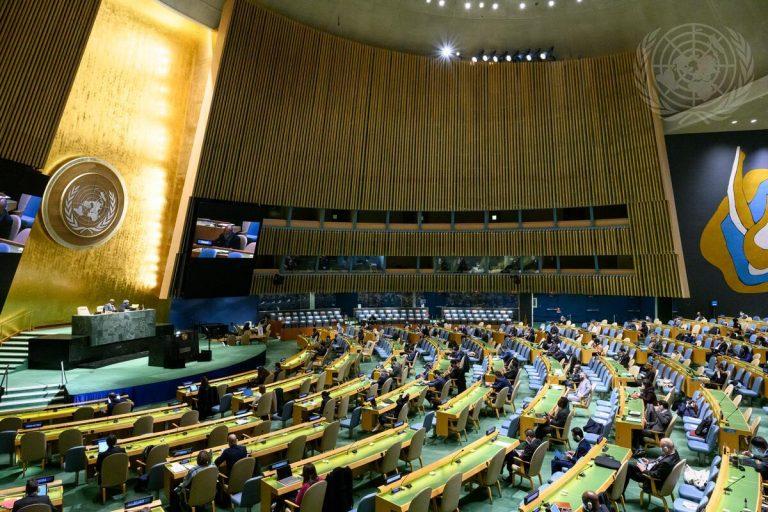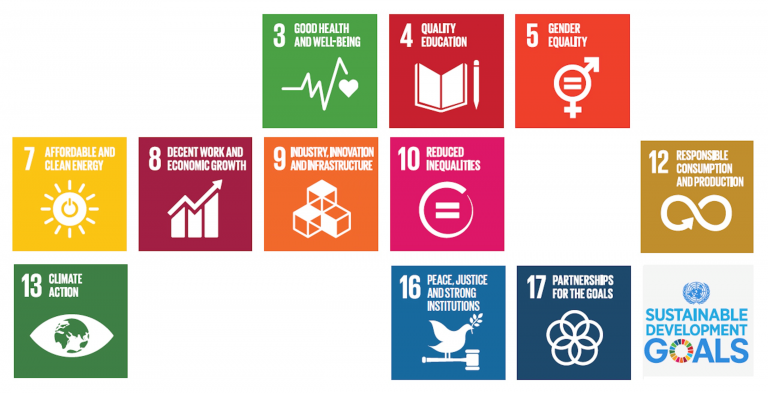Special UN year to highlight role of basic sciences in sustainable development

The United Nations General Assembly has promulgated 2022 as the International Year of Basic Sciences for Sustainable Development – an initiative backed by the SKAO.
The SKA Observatory (SKAO) sits on the initiative’s steering committee together with 25 other international scientific unions and partners, including fellow intergovernmental organisations CERN and ITER, and the International Astronomical Union.
The General Assembly motivated its decision by highlighting “the high value for humankind of basic sciences” and stating that basic sciences are vital “to improve the quality of life for people all over the world”.
The international year will provide a unique opportunity to showcase and improve the links between basic sciences and the 17 Sustainable Development Goals (SDGs) to be reached by 2030.
Observatory contributes to 14 goals
Sustainability is one of the SKAO’s foundational values, with the Observatory and its partners contributing to 14 of the 17 SDGs.
“We have committed to building a sustainable Observatory; this must lie at the heart of any 21st-century scientific facility,” said the SKAO’s Director-General, Prof Philip Diamond. “As such, as we deliver on our ambition to push technological boundaries to transform our view of the universe and advance knowledge, we will ensure that our actions always consider sustainability and we will do our part in delivering on the UN’s Sustainable Development Goals.”
Although construction of the SKA telescopes only started in July 2021, the project has already produced a tangible and visible contribution to the SDGs. This is thanks to the contribution of partners around the world over many years of development, including building capacity and skills, generating innovation, creating jobs, boosting economies, training the new generation of scientists and engineers, but also responding to the Covid-19 pandemic.
In its announcement, the UN said the successes in the global fight against the ongoing pandemic is a current reminder of the globe’s reliance on basic sciences.
Official launch in mid-2022
The International Year of Basic Sciences for Sustainable Development (IYBSSD) is due to be officially launched at UNESCO’s headquarters in Paris in mid-2022. It will be marked by a number of conferences and cornerstone projects on different continents, with the SKAO planning its own series of activities in line with the international year.
The resolution was co-sponsored by 37 countries, including SKAO members and prospective member countries South Africa, Spain, India, and Japan.
Find more information on the International Year of Basic Sciences for Sustainable Development at https://www.iybssd2022.org.





